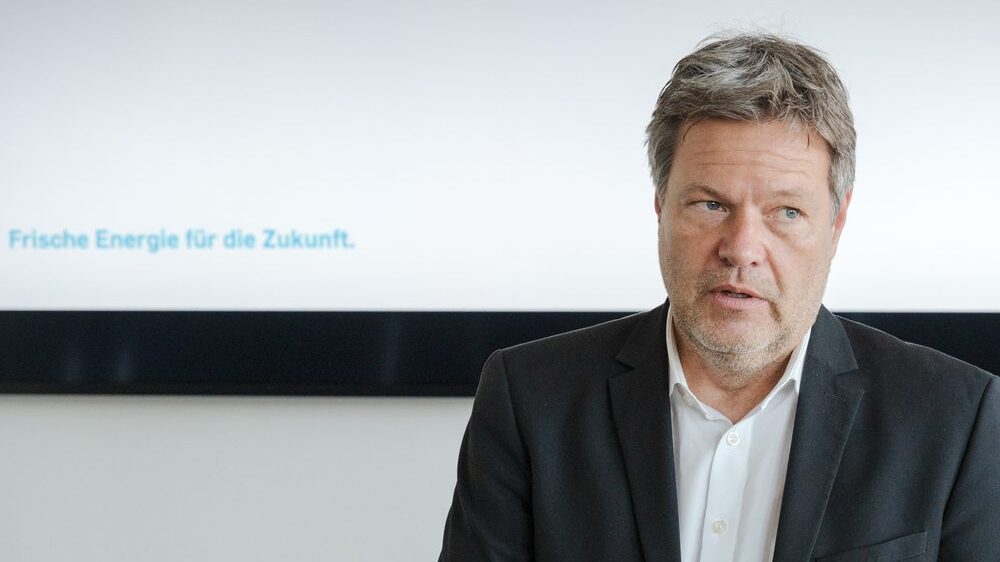
German Economic Minister Robert Habeck.
Photo: penofoto / Shutterstock.com
After spearheading the push to phase out all nuclear power production in Germany, Economic Minister Robert Habeck (Greens)—with his party’s popularity plummeting over its anti-working-and-middle-class energy policies—has sounded the alarm over a potential Russian gas supply halt, warning that the outcome could force Germany to shut down its industrial capacity.
Habeck’s stark warning comes as gas transit contracts between Russia and Ukraine, which allow Russian natural gas to flow through Ukraine to eventually reach countries like Germany, Austria, Hungary, Slovakia, and other Central and Eastern European countries, are set to expire at the beginning of next year and have little chance of being renewed, the Berlin-based newspaper Tagesspiegel reports.
While speaking at the East German Economic Forum in Bad Saarow, Brandenburg, on Monday, June 12th, the minister said:
I just want to point out that the transit agreements that Russia has signed with Ukraine will expire in 2024. And the war is raging. There is no sure scenario for how things will turn out.
If Russian gas were not to come to Eastern Europe at the rate it is still flowing through Ukraine, what was agreed upon at the European level would apply. Before people freeze there, [Germany] would be required to curb or even shut down our industry.”
Since European Union laws oblige member states to provide gas to neighboring countries whose households or essential services like hospitals face severe shortages, Germany, in the case of potential gas shortages in Central and Eastern Europe, would have to export gas there to counteract the deficits. If this happens, manufacturers in Germany, Europe’s largest economy, could be left with limited or no gas supplies, Habeck warned.
Therefore, the minister continued, completing the construction of the planned LNG terminals at the North Sea port of Wilhelmshaven, which will substantially increase Germany’s energy storage capacity, is essential to continue energy flows to Eastern Germany and Central and Eastern Europe.
Presently, Germany’s energy storage facilities are nearly 80% full, the Green politician said.
Although some gas deliveries are expected to continue beyond 2024, the volume is highly unlikely to be on par with what is presently being delivered, given the lack of political support to renew the contracts, according to a report by the Center on Global Energy Policy that was published earlier this month.
“Direct negotiations between Ukraine and Russia on the extension of the transit agreement seem highly unlikely in the current environment,” said the report’s authors Anne-Sophie Corbeau and Tatiana Mitrova, adding that “reaching a new transit deal would require a totally different geopolitical environment.”
